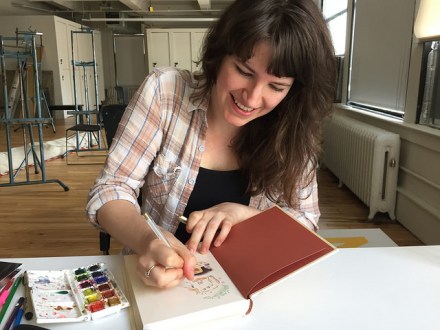Virtual Memories Show #185: Willard Spiegelman
Podcast: Play in new window | Download
Subscribe: Spotify | TuneIn | RSS | More
“It’s an existential question, not a historical one: what kinds of places make you feel at home? Some people feel at home nowhere, and some feel at home everywhere. I’m myself, wherever I am.”
 Willard Spiegelman returns to the show to talk about his wonderful new essay collection, Senior Moments: Looking Back, Looking Ahead
Willard Spiegelman returns to the show to talk about his wonderful new essay collection, Senior Moments: Looking Back, Looking Ahead (FSG). We get into the process of deaccessioning, Mark Strand’s advice on paring down to 100 books, Willard’s take on 45 years living in Dallas (and what he’ll miss about it now that he’s retired), the joy of getting lost in Italy, the best way to pick someone up in NYC, the contrast of his 50th high school and college reunions, and more. Give it a listen! And go buy Senior Moments
!
“I’m enthusiastically looking forward to getting rid of everything.”
Podcast: Play in new window | Download
Subscribe: Spotify | TuneIn | RSS | More
We also mix it up over the aesthetic sunk cost fallacy, ponder being alone in the middle of a crowd, compare Japan and Hungary relative to being linguistically uprooted (I argue that Hungary is tougher, because it looks like you should be able to piece together the language), examine the pharaonic idea of hoarding, and listen to time’s winged chariot hurrying near. Now go listen to the show!
“I’m much too old to write a memoir. That’s the province of 25-year-olds.”
Enjoy the conversation! Then check out the archives for more great episodes! You might like:
- Willard Spiegelman (2013)
- Jonathan Galassi
- Burton Pike
- Rachel Hadas (2016)
- Ann Patty
- Langdon Hammer
- JD McClatchy
Follow The Virtual Memories Show on iTunes, Twitter, Facebook, Tumblr, and RSS!
About our Guest
Willard Spiegelman is the Hughes Professor of English at Southern Methodist University in Dallas. From 1984 util 2016, he was also the editor in chief of Southwest Review. He had written many books and essays about English and American poetry. For more than a quarter century, he has been a regular contributor to the Leisure and Arts pages of The Wall Street Journal. In 2005, Willard won the PEN/Nora Magid award for literary editing. In addition to Senior Moments, he’s also written or edited Seven Pleasures: Essays on Ordinary Happiness, How Poets See the World: The Art of Description in Contemporary Poetry
, Wordsworth’s Heroes
, Imaginative Transcripts: Selected Literary Essays
, Majestic Indolence: English Romantic Poetry and the Work of Art
, The Didactic Muse: Scenes of Instruction in Contemporary American Poetry
, and Love, Amy: The Selected Letters of Amy Clampitt
. Oh, and he’s quite dapper.
Credits: This episode’s music is Nothing’s Gonna Bring Me Down by David Baerwald, used with permission of the artist. The conversation was recorded at Mr. Spiegelman’s home on a pair of Blue enCORE 200 Microphones feeding into a Zoom H5
digital recorder. I recorded the intro and outro on a Heil PR-40 Dynamic Studio Recording Microphone
feeding into a Mackie Onyx Blackjack 2×2 USB Recording Interface
. Photo of Mr. Spiegelman by me.


















